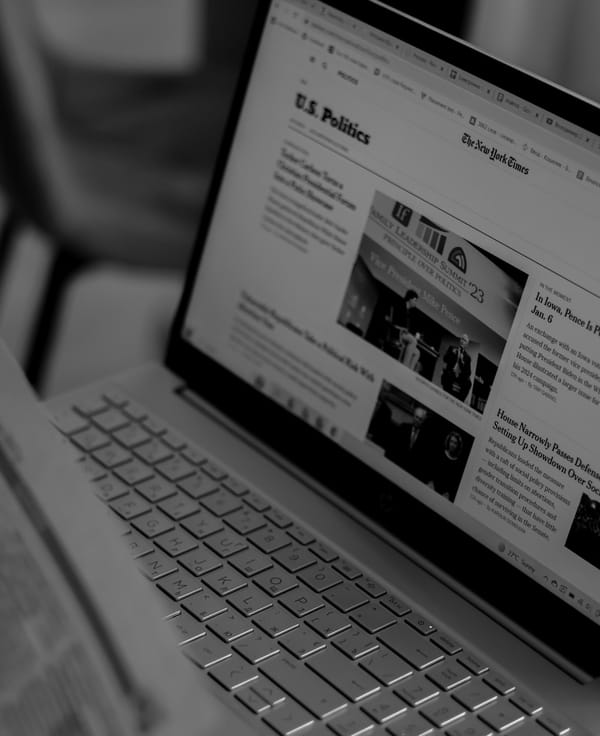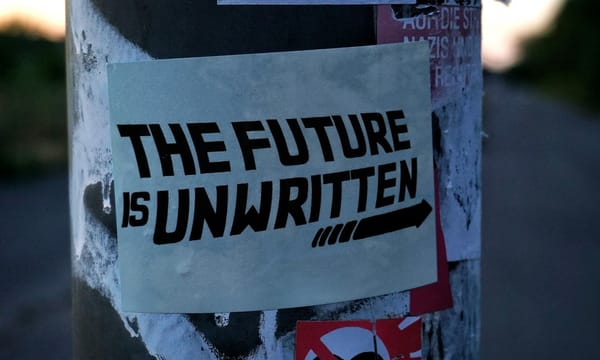Cosmos by Carl Sagan: How It Can Help Fight Authoritarianism
Carl Sagan’s Cosmos (1980) is more than just a book about space—it’s a manifesto for critical thinking, scientific curiosity, and the survival of democracy itself.

Sagan doesn’t just explain the grandeur of the universe, he warns us that our ignorance and susceptibility to authoritarianism could destroy everything we hold dear. At its core, Cosmos is an argument for intellectual freedom, skepticism, and the power of knowledge—all of which are essential weapons against authoritarianism.
The Universe as an Antidote to Tyranny
Sagan opens Cosmos with a stunning perspective shift:
“The cosmos is all that is, or ever was, or ever will be.”
From the very first line, he forces us to zoom out from our daily lives and see the bigger picture. When we recognize our place in an ancient, vast, and evolving universe, we also recognize:
- Authoritarianism is small-minded. Tyrants operate on short-term, selfish thinking—but the universe demands a broader perspective.
- Humanity is one species. The Earth is a tiny, fragile world. Borders, nationalism, and divisions become absurd when viewed from space.
- We are part of something greater. True power doesn’t come from control—it comes from understanding, exploration, and discovery.
The cosmic perspective humbles us and makes authoritarian power grabs look ridiculous.
The Power of Critical Thinking: Why Authoritarians Hate Science
Sagan is relentless in defending scientific skepticism—the ability to question, test, and reject falsehoods. This is dangerous to authoritarians, who demand blind obedience rather than critical inquiry.
Authoritarians say: “Trust me, I know best.”
Science says: “Prove it.”
Sagan constantly warns that when people stop questioning, they become easy to manipulate. He highlights how pseudoscience, religious dogma, and propaganda have been used to control populations throughout history.
- He calls out witch hunts and heresy trials, showing how questioning authority was often punishable by death.
- He criticizes totalitarian regimes (both fascist and communist) for suppressing free thought and punishing scientists who didn’t conform.
- He warns that the decline of scientific literacy makes people more susceptible to authoritarian lies.
Authoritarianism thrives on ignorance. Science and skepticism are its natural enemies.
The Library of Alexandria: A Cautionary Tale About Knowledge and Power
One of the most powerful moments in Cosmos is Sagan’s heartbreaking account of the destruction of the Library of Alexandria—one of the greatest centers of knowledge in human history.
Why was it destroyed? Because those in power feared knowledge. The library housed centuries of scientific advancements, but rulers saw it as a threat to their control. The loss of the library set back human progress by centuries—and we will never know how much was lost.
Sagan warns that this can happen again. When authoritarians come to power, they burn books, censor ideas, and rewrite history to serve their narrative. If knowledge is not protected, civilization itself can collapse.
The destruction of knowledge is one of the first warning signs of authoritarianism.
The Fragility of Civilization: Science vs. Barbarism
Sagan repeatedly emphasizes that civilization is not guaranteed.
“We make our world significant by the courage of our questions and by the depth of our answers.”
Why is this relevant to fighting authoritarianism?
- Democracy is fragile – Just like scientific progress, it can be destroyed if not actively defended.
- Knowledge is power – A well-informed population is harder to manipulate.
- Curiosity is resistance – Tyrants demand obedience, but science encourages questions, dissent, and independent thought.
Sagan warns that societies that reject science and reason often collapse into chaos and authoritarian rule. A society that values critical thinking is harder to control. A society that embraces ignorance is ripe for dictatorship.
The “Demon-Haunted World” and the Rise of Pseudoscience
Even though Cosmos was published in 1980, Sagan foresaw the rise of conspiracy theories, misinformation, and political manipulation.
- He warns about pseudoscience and superstition replacing rational thought.
- He worries about scientific illiteracy making people easy prey for false claims.
- He criticizes leaders who exploit fear and irrational beliefs to gain power.
In a later book, The Demon-Haunted World (1995), Sagan expands on this, saying:
“You have to know the past to understand the present. Without that sense of history, you are a leaf that doesn’t know it is part of a tree.”
This applies directly to authoritarianism:
- Leaders who erase history control the future.
- If people don’t understand science, they believe whatever they are told.
- Misinformation is a tool of oppression—and education is its antidote
Educated people are harder to manipulate. Authoritarians fear knowledge.
Why Cosmos Is a Guidebook for Resistance
Sagan may not have written Cosmos as a direct political manifesto, but it’s one of the most powerful anti-authoritarian books ever written.
- It encourages skepticism. Don’t trust authority without evidence.
- It values knowledge. Education is a weapon against oppression.
- It warns about propaganda. Authoritarians distort reality to maintain control.
- It promotes global unity. Nationalism and division are illusions—Earth is one fragile world.
- It humbles power. Dictators are nothing in the face of the vast cosmos.
How Cosmos Helps Us Fight Authoritarianism Today
- Perspective is power – When you see the big picture, tyranny seems small and absurd.
- Science is resistance – An educated population is harder to deceive.
- Truth must be defended – History shows that knowledge is always under attack.
- Question everything – Authoritarians hate skepticism because it weakens their control.
- Borders are imaginary – Nationalism and division are tools of oppression.
Carl Sagan wasn’t just teaching us about the stars—he was teaching us how to think, how to question, and how to resist. The universe is vast, but our freedom, knowledge, and civilization are fragile. If we don’t actively defend them, they can be lost.
TL;DR – Why Cosmos Is an Anti-Authoritarian Masterpiece
"Our planet is a lonely speck in the great enveloping cosmic dark. In our obscurity, in all this vastness, there is no hint that help will come from elsewhere to save us from ourselves."

Authoritarianism is small-minded. The universe forces us to think bigger. Dictators fear knowledge, and education and critical thinking are weapons of resistance. History warns us that the destruction of knowledge leads to oppression. Science protects democracy with skepticism, and rational thought keeps us free.
We are one species. Tyranny thrives on division, but the cosmos unites us.
Carl Sagan was, in many ways, a revolutionary thinker. Not because he was political, but because he gave people the tools to think critically, ask questions, and resist manipulation. That makes Cosmos one of the most powerful guides to fighting authoritarianism ever written.





